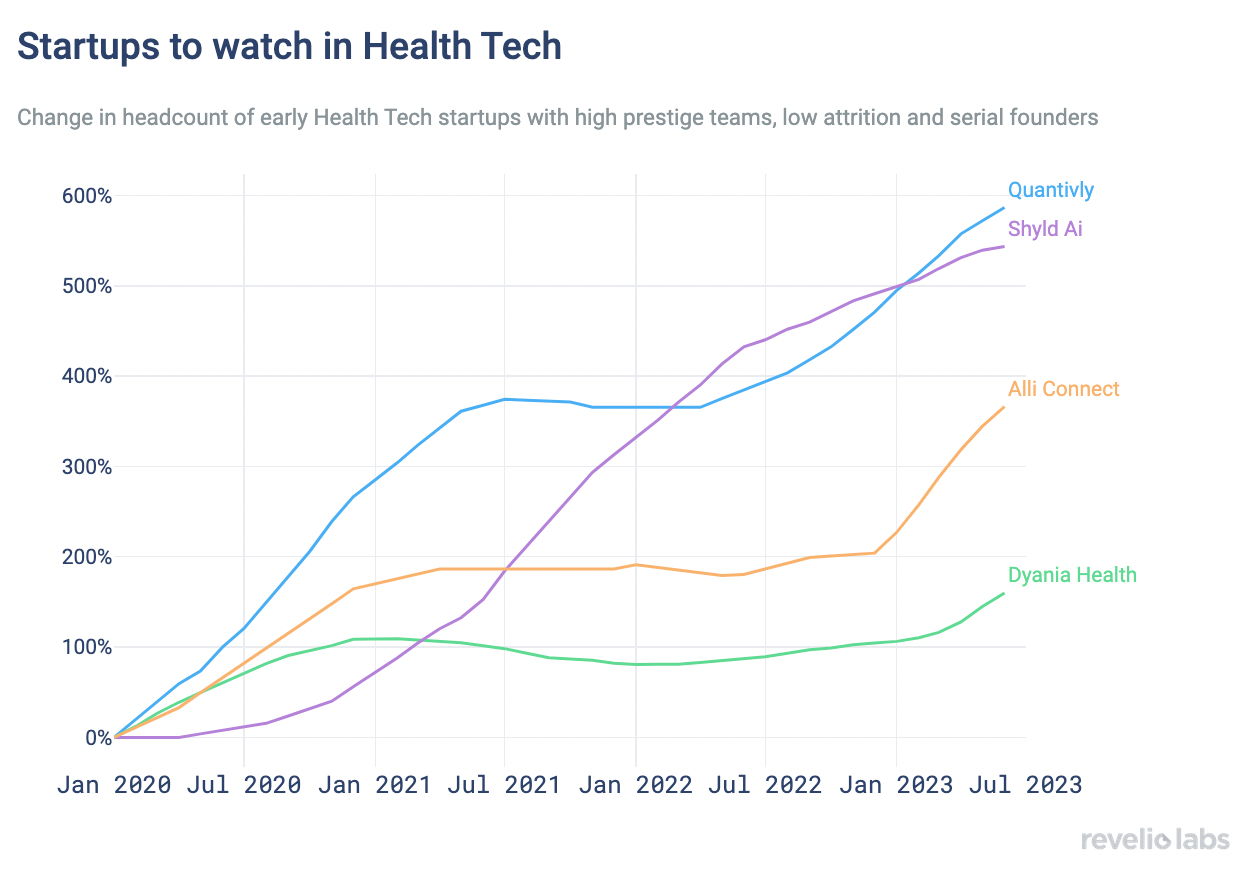What Successful Startups Have in Common
Successful startups get the founding team right

For investors, identifying high growth opportunities is hard. Fast- and slow-growing companies look very similar in the first 3 years when considering headcount growth.
How are fast-growing startups different? They have lower attrition rates in early years, are more likely to be founded by serial entrepreneurs, and have founding teams with higher prestige scores.
Which AI Health Tech startups are currently fulfilling these criteria?
The big years for easy startup money are over: Startup funding was down by 62% in 2022 and shows only slow signs of recovery in 2023 so far. As capital is becoming more expensive and uncertainty is increasing in the economy, venture capital has become understandably careful about what to invest in, even with the ongoing surge in AI startups.
Below are the trajectories of headcount growth for AI health tech startups with the highest and the lowest headcount growth within 6 years after being founded. The crux? They look similar for the first three years before starting to diverge!

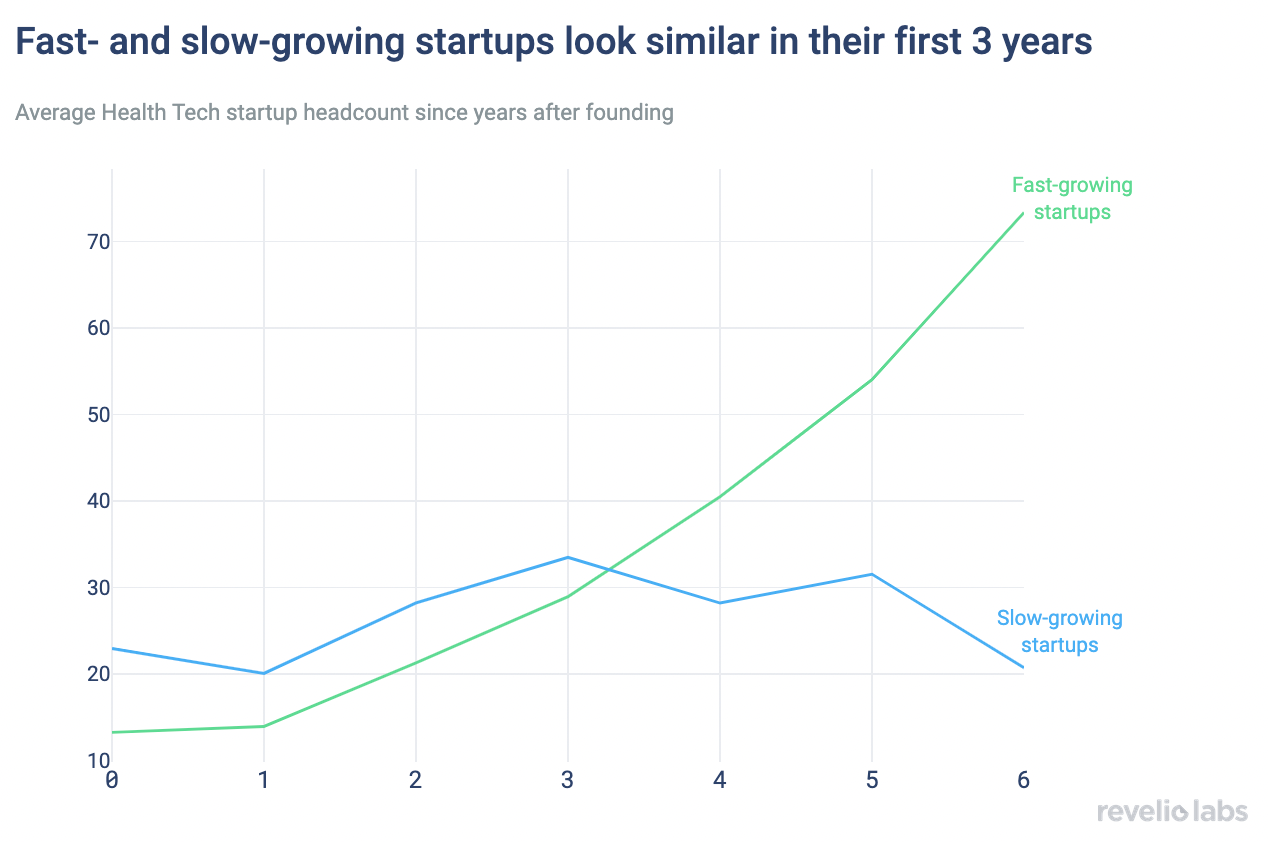
As an investor, you want to know sooner than that whether there is a high growth opportunity with the startup. What are some other prescriptive analytics tools and metrics to utilize?
First are attrition rates in the early years of the startup. While a healthy turnover rate can be beneficial for established companies, high attrition rates in early startups can be a red flag and a sign of disagreement among the founding team, lack of a shared vision, or simply poor management. Fast-growing startups have lower workforce attrition rates than slow-growing startups in the first three years.

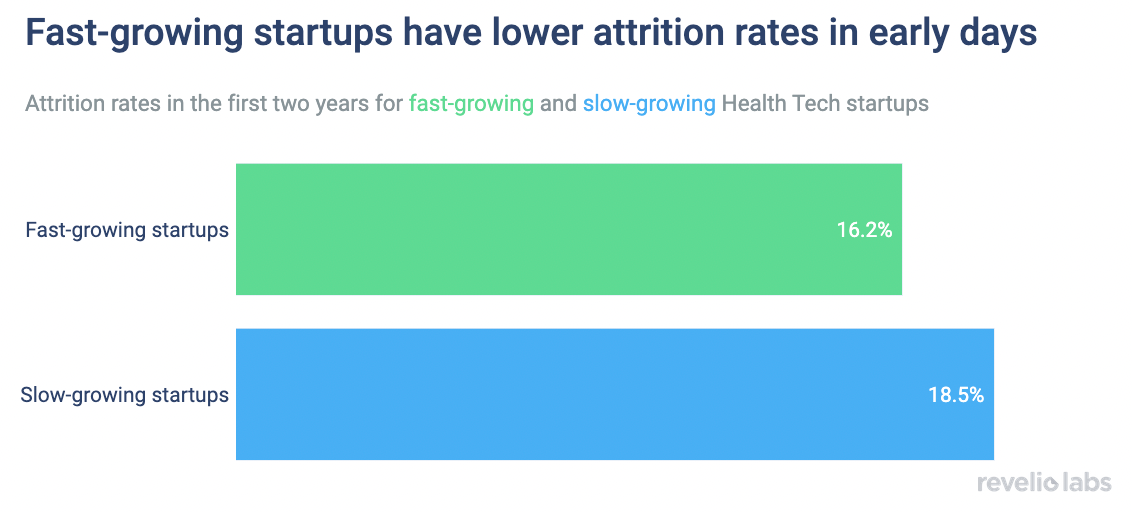
Sign up for our newsletter
Our weekly data driven newsletter provides in-depth analysis of workforce trends and news, delivered straight to your inbox!
What about the founders, does prior entrepreneurial experience matter? Revelio Labs finds that fast-growing startups are slightly more likely to be founded by serial entrepreneurs than first-time founders. This isn’t too surprising – having experience with founding your own company can help avoid common pitfalls of first-time founders.

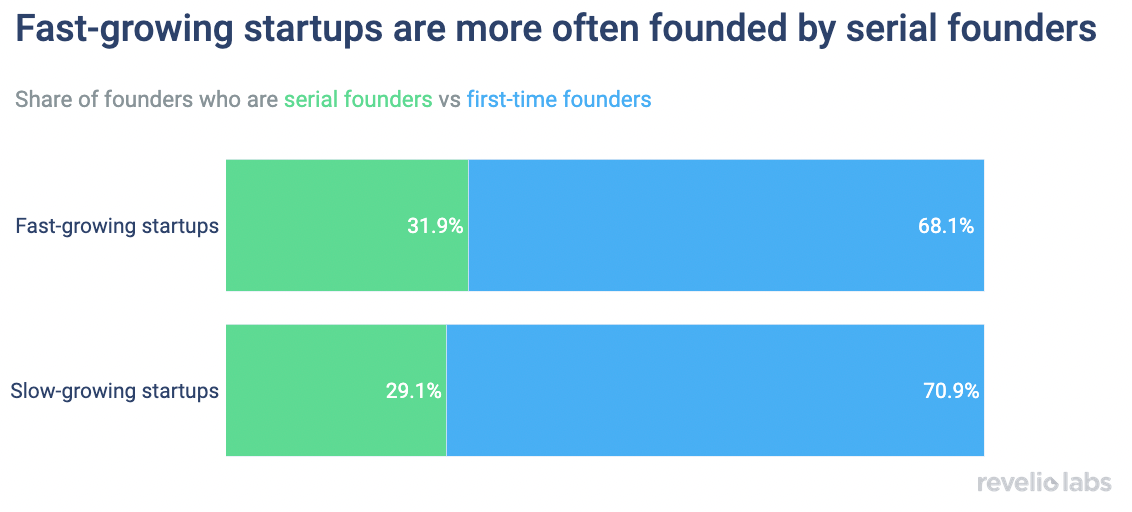
While prior entrepreneurial experience only has a mild impact, the background of the founding team makes a big difference. Fast-growing startups have much higher average prestige scores than slow-growing startups. Our prestige score takes into account which schools someone attended, as well as the companies they previously worked at. The higher the prestige score, the more someone has been exposed to people from prestigious institutions.

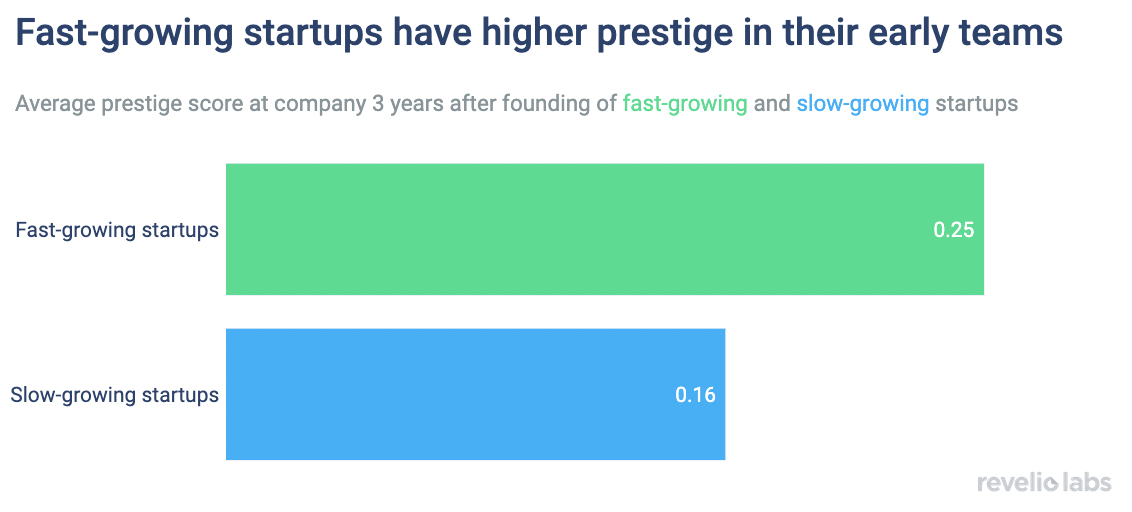
So which companies are fulfilling these criteria? We were particularly interested in the growing field of Health Tech and AI-focused health startups. Quantivly, Shyld AI, Alli Connect, and Dyania Health all have low workforce attrition rates, are founded by serial entrepreneurs, and have high-prestige founding teams. They are also examples of companies revolutionizing healthcare provision using technology. Reach out to us if you would like help using our prescriptive analytics tools to identify other promising startups in other areas!

